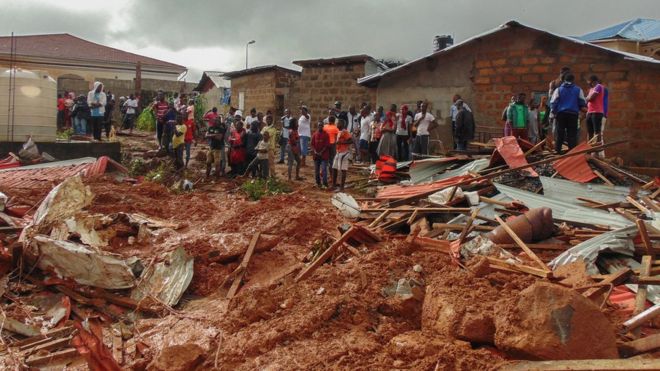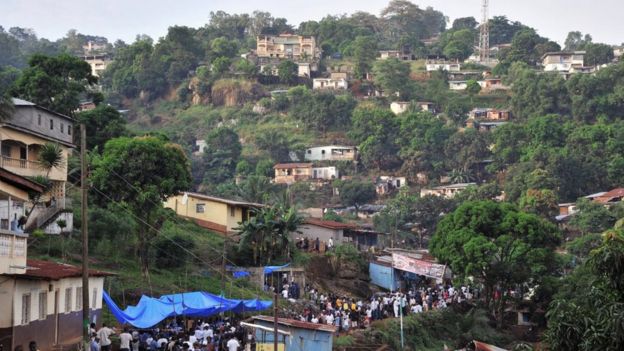Freetown: A disaster waiting to happen?
 EPA
EPA
Freetown is a city squeezing itself into the small space between the mountains and the sea, in a country with the highest annual rainfall in Africa.
In August - the height of the rainy season - an average of 539.9mm falls on Sierra Leone's capital.
So it comes as no surprise that Freetown is a city used to flooding.
But Monday's rain brought with it a disaster which left hundreds dead, and will no doubt be followed by finger-pointing and blame shifting.
Was it simply the effects of climate change and geography, or something more avoidable?
"Yes, the floods and mudslide were caused by nature. But they could have been avoided or at least mitigated," the BBC's Umaru Fofana wrote on his Facebook page.
"If we hurt the environment, the environment will fight back. If we fail to plan, we plan to fail. It's that simple."
'People everywhere'
Freetown was first established in the late 1700s, a home for freed slaves from the US and UK.
Its position was chosen not for what was on land, however, but what the sea could offer: the world's third largest natural harbour.
As a result, Freetown ended up in an area of heavily-forested mountains, which has not been accommodating for a growing population - currently around the million mark.



No comments